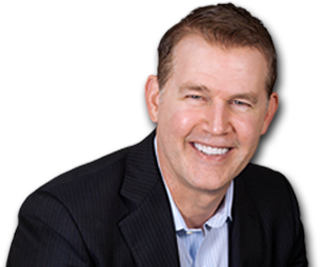I often get asked for advice about money. That’s not a statement of arrogance. I’m happy to help anyone who’s willing to work at changing their financial future. It’s my way to give back.
But here’s the thing…

The operative phrase in the statement above is “who’s willing to work…”.
One thing that I’ve noticed about some people that ask for my advice is this… they really don’t want advice at all. Sounds strange doesn’t it?
You see, some people aren’t looking for advice as much as they are looking for validation. And not just validation for any idea they have. They are looking for validation for a bad idea.
And here’s the rub…
Deep down, they know what they want to do is a bad idea.
However, they reason, if someone who is knowledgeable about the subject matter gives them the thumbs-up, then they can move forward with their bad idea, guilt-free. So, instead of advice, they want something of a “good housekeeping seal” that makes them immune to the consequences of their bad idea, or so they think. After all, if the Pope said it was OK for you to rob a bank, it must be OK right?
The best example I can give of this phenomenon is Suze Orman’s “Can I Afford It?” show. If you’re not familiar with it, it’s a popular TV program where people call-in and ask Orman if they can afford that boat, car or other flashy item that they’ve got their eyes on.
Orman works thru their income and expense numbers with them and then comes up with a yes or no answer, letting them know if they can indeed afford the item or not.
But here’s what bothers me about this entire concept…
Determining whether you can afford something or not is just basic math. No differential equations or geometry. Just simple addition and subtraction. Anyone calling into the show can do the math themselves, so why the need to ask someone if they can afford it or not?
What I find, is that when adults do strange things about money decisions like this, there’s more to the story…
So, what’s happening here? Why don’t these same people do the math for themselves?
The reason is that they don’t want to do the math for fear of the answer it may give them. In other words, they know down deep they can’t afford whatever it is they want to buy, but they’re hoping that an expert will do some miracle math and rubber stamp it for them.
It does hurt to ask
Now, this may all seem like innocent fun but there’s something wrong with this. Here’s why: When a person comes looking for validation masquerading as wanting advice, they tend not to listen to the advice if it disagrees with what they want. Disappointed with the answer, they get upset, ignore the advice and go searching for someone who will validate their bad idea.
And someone will eventually validate them. But not a true friend or someone with integrity. It will be someone that will tell them what they want to hear. There’s plenty of those people, who are seeking validation of their own – the need to be liked by everyone. Stay away from these people.
But that’s not the worst thing happening here. There’s something even more insidious going on. You see, these people are taking themselves out of the cycle of responsibility.
If you say, “It doesn’t hurt to ask,” you’re wrong. It removes the responsibility from you. You might as well proclaim that some outside force now controls your money decisions, that you’re just a helpless slug waiting for the money queen to tell you what you can and can’t do with your money. Doesn’t sound so fun does it?
Don’t kid yourself. There’s harm in asking, especially if you do it the wrong way with the wrong people. Money is very personal and decisions about it shouldn’t be blindly outsourced to another person. Nobody is going to care about your finances more than you and you can’t fix anything majorly wrong in your life, without first taking responsibility.
Does that mean you shouldn’t ask anyone for advice? Of course not. There are many qualified people to get money advice from. As with anything, there’s a right way to get advice about money and success. But before I get into that, I want to briefly mention the types of people you should not seek advice from:
1. Someone who hasn’t already achieved what you want to achieve. I shouldn’t have to mention this, but I’m surprised by the number of people who’ll just let anyone speak into their lives about money. The world is full of talking heads that will tell you everything you ever wanted to know about building wealth, but ironically who haven’t actually managed to build wealth for themselves! Be wary of these people. Judge them by the fruit of their trees. If you don’t like what you see in the life of the messenger, then it’s best to just ignore the message.
2. Someone with a vested interest. If you’re not 100% sure whether someone has a conflict of interest, they probably do—and their advice may be biased. Maybe that broker earns a bigger commission on that specific stock he keeps suggesting. Or he’s trying to make his quota for the month and therefore has his best interests in mind. As they say, never ask the barber for advice on whether you need a haircut or not. I’m very proud of the fact that there’s nothing for sale on this website. I simply share everything I know about building wealth from my own journey to financial freedom. I’m here to help, not trying to gain something from you.
3. Someone who is overly risky or overly cautious. Swinging for the fences looks good in the movies, but it rarely plays out well in real life with money. Also, playing it too safe is a fantastic strategy for maintaining the status quo in the short term, but you’ll lose in the long run to those who are willing to take calculated risks. Being a Navy Seal or the opposite, a Nervous Nellie, about money are both bad.
So, how can a person get good advice? Here are some tips:
Aim to “get it right” instead of to trying to “be right”. We all want to “be right” about our ideas and choices. Much of this is ego-driven. But when your goal is to only “be right”, it’s easy to fall into the trap of just seeking validation and rejecting the real truth. As Andre’ Maurois said, “Everything that is in agreement with our personal desires seems true. Everything that is not puts us in a rage.” In other words, we don’t see things for how they really are, we see them as we are. Know that the ego will always act to preserve its sense of well-being and sets up defenses to avoid feeling embarrassed or being wrong. Enter into any advice-getting situation divorced from the need to be right. Tell yourself that you want to “get it right” and be open to hear the truth.
Be specific. General advice about money is practically worthless. When asking for advice, explain the specific situation, the decision point that must be made and ask for input. Also, leave out the conjecture and focus on the facts. Good ideas should stand on their own merits. Ideas that require a lot of external variables to line-up perfectly with the stars and moon at just the right time are not good ideas. They are bad ideas made to look good by surrounding them with a lot of faulty “if this happens and that happens” thinking.
Encourage contradiction: If you want everyone to agree with you, just invest in a room full of mirrors. When seeking advice on success, surround yourself with successful people who have diversified backgrounds, perspectives, and risk profiles. No two people follow the same path to success, so you’ll get some interesting feedback from a diversified group who will provide you with angles you might not have anticipated.
Ask multiple people. Ask as many successful people as you can find for their view on a tough question. When you get differing answers, ask why the other’s answer is wrong. Ask how their own opinions could be wrong. Beware of people who say their answer is absolutely correct when the question truly doesn’t have a good answer. They are either naïve or insecure.
Be willing to change. You can’t solve your problems with the same thinking that created the problems in the first place! Being open to well-proven ideas for success that happen to contradict your current way of thinking takes courage. It’s much easier to stay where you are at and find someone who will validate your current choices. But that’s a recipe for failure. As John Maxwell says, “The colossal misunderstanding of our time is that insight will work with people who are unmotivated to change.” Before you ask for advice, ask yourself this question – “Is what I’ve been doing with money working for me?” It’s a Yes or No answer and if you need helping answering it, look at your bank balance. Like a bathroom scale, it never lies.
I’m fortunate to have received great input from some talented people when I was young. These advisors where not shy about giving me their honest input, rather just validating my accomplishments. Rest assured, they’d be brutally honest if there was room for improvement. As a result, I gave myself the opportunity to fine tune and improve.
There’s a time and place for validation. For example, when your significant other asks “Do I look nice?” they may not actually be seeking brutal honesty at that moment. In that situation, saying they look beautiful or handsome is all that they are seeking.
But, in the all-too-important matter of wealth building you will not benefit from little white lies that make you feel better. Seek the truth, not validation. Aim to get it right.
Be free. Nothing else is worth it.
P.S. Why aren’t you wealthy yet? It’s because of something you don’t know. Otherwise you’d already be rich. Isn’t it time to learn what you don’t know? Consider signing-up for my newsletter below, to help you build wealth faster.
P.S.S. Looking to make an overnight fortune? Don’t sign-up to receive my newsletter below. There’s no magic secret. Becoming financially free takes time and dedication. But learning professional-grade money skills can have a life changing effect. If you’re ready to put in the work and learn, I can show you how to achieve financial freedom faster than normal.
P.S.S.S. There’s nothing for sale on this blog or in my newsletter. That’s right. Unlike other sites who claim to help people achieve financial success, I’m not trying to sell you anything. In fact, I find it a little disgusting that some sites insist that you buy something before they teach you how to become rich. Here on my blog and in my newsletter, I just provide actionable advice for free. It’s my way to give back. What do you have to lose? Subscribe today.
Ready for more tips on how to achieve the free life? Check-out more articles from the blog archives below:
What Did You Just Say? Seven Phrases That Financially Successful People Never, Ever Say
What’s The Most Addictive Drug Out There? Hard To Believe, But Nearly Every American Is On It!
They Scoffed At Having One Earlier, But With The Coronavirus Everyone Wants One Of These Now!







